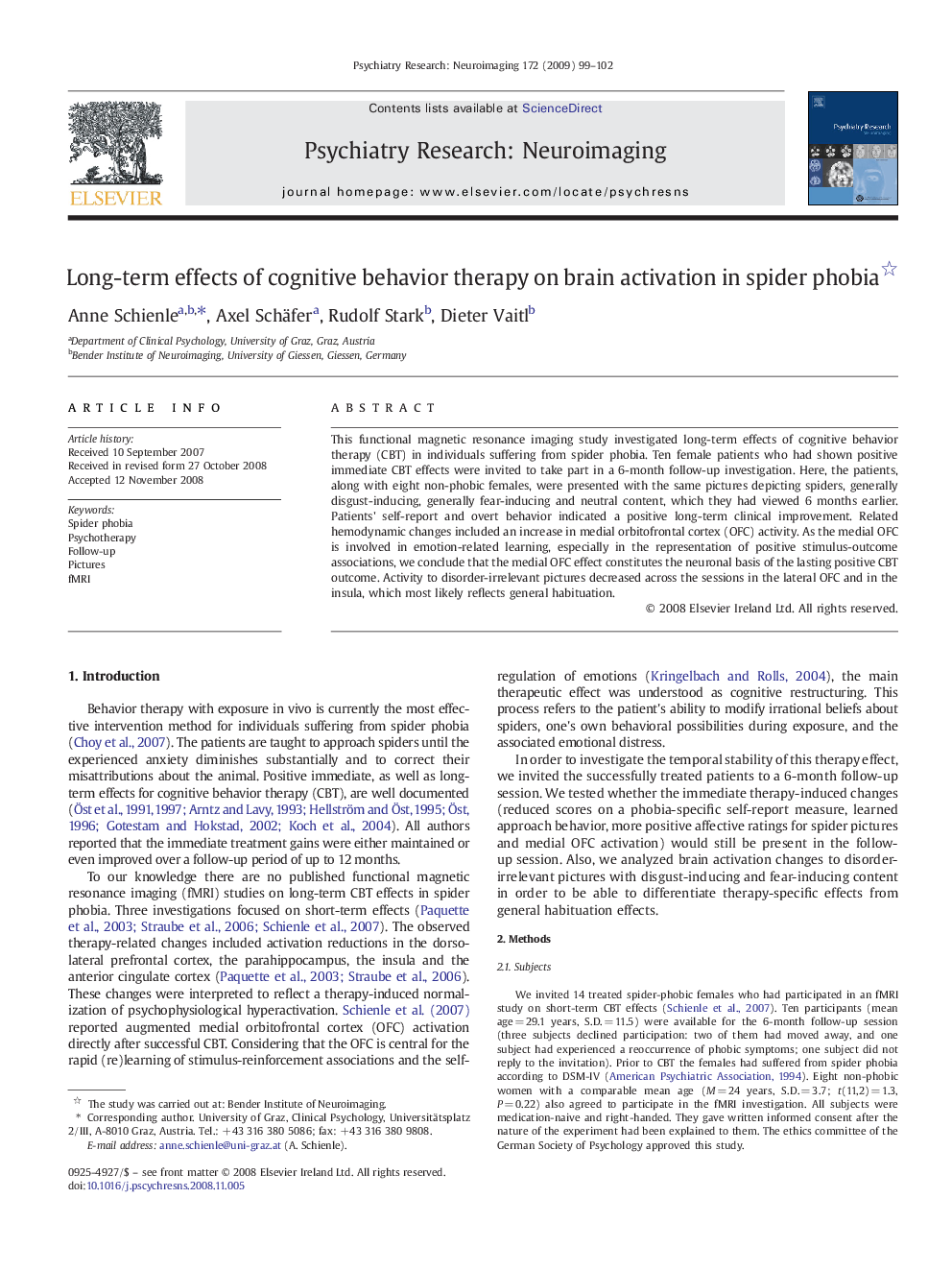| Article ID | Journal | Published Year | Pages | File Type |
|---|---|---|---|---|
| 335566 | Psychiatry Research: Neuroimaging | 2009 | 4 Pages |
This functional magnetic resonance imaging study investigated long-term effects of cognitive behavior therapy (CBT) in individuals suffering from spider phobia. Ten female patients who had shown positive immediate CBT effects were invited to take part in a 6-month follow-up investigation. Here, the patients, along with eight non-phobic females, were presented with the same pictures depicting spiders, generally disgust-inducing, generally fear-inducing and neutral content, which they had viewed 6 months earlier. Patients' self-report and overt behavior indicated a positive long-term clinical improvement. Related hemodynamic changes included an increase in medial orbitofrontal cortex (OFC) activity. As the medial OFC is involved in emotion-related learning, especially in the representation of positive stimulus-outcome associations, we conclude that the medial OFC effect constitutes the neuronal basis of the lasting positive CBT outcome. Activity to disorder-irrelevant pictures decreased across the sessions in the lateral OFC and in the insula, which most likely reflects general habituation.
